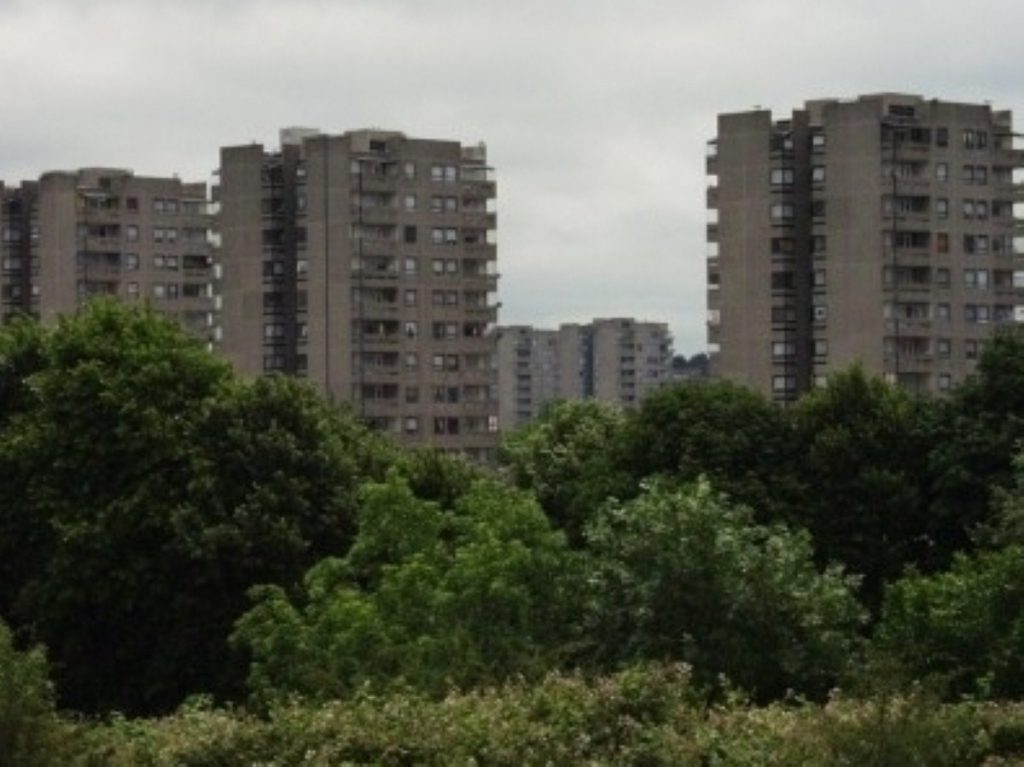Boris Johnson and the ‘social cleansing’ of London’s estates
By Darren Johnson
It was Boris Johnson who first popularised fears about ‘social cleansing’ in London, when he famously promised to ensure it would never happen on his watch.
But when it comes to regenerating London's estates, the awkward truth is that for thousands of people facing the 'regeneration' of their communities, the mayor's policies have only increased those fears.
Getting the truth about Boris's record on housing is not always easy. While the mayor is adept at a colourful turn of phrase, he is far less adept when it comes to statistics. Whenever you hear him talking about estate regeneration and affordable housing, you'll notice that he only ever mentions the number of new homes being built.
What he doesn’t mention are the homes that are demolished first. The most famous example is the Heygate Estate in Southwark where it's often boasted that 2,700 new homes are being built. But before construction could start, 1,100 homes were demolished. So the real number of additional homes is actually just 1,600.

In recent years Boris has also championed so-called Housing Zones, where he says he will build over 50,000 homes. But take account of estate regeneration and the net increase in all types of homes is actually 3,100 lower than the Mayor claims.
Then there is the change in tenure. New studio flats for sale from £350,000 aren’t much use to the existing tenant living off the state pension or the London Living Wage. At the Heygate, after 1,034 council homes are demolished, just 82 new new homes will be let at social rents with secure tenancies. Other ‘affordable’ homes will come with much higher rents, or be sold to people with much higher incomes.
The Heygate may be an overused example, but the wider picture in London is even worse.
I’ve obtained figures from City Hall planners showing that across London there are currently 214 estate regeneration schemes with planning permission, either in progress or not yet started. These figures reveal that after homes are demolished and replacements built, there will be an overall net loss of 7,326 social rented homes across London.
Excellent exposé from Darren Johnson in the London Assembly. I'd stop estate demolition and get proper regeneration. https://t.co/XasHq1Be6E
— Sian Berry (@sianberry) February 5, 2016
And while those figures seem bad, they only apply to planning agreements. Those agreements aren't always met. I’ve worked in recent years with a group of campaigners in Southwark called 35% to track where agreements have been weakened and broken. From the time that planning consent is granted to when tenants move in, rent levels can often increase, tenancy terms can get worse and even the total numbers of affordable homes can drop.
And this all comes at a cost. The government and mayor are currently spending hundreds of millions of pounds and selling public land worth many billions of pounds on estate regenerations which ultimately will merely whittle away at the stock of genuinely affordable housing in London.
This may not be the dramatic form of social cleansing which Boris once warned against. But for the tenants and leaseholders on these estates it feels like wave after wave of regeneration is washing away their communities. With a few honourable exceptions estate regeneration has been a complete disaster in London and has only made our housing crisis worse.
People who live on these estates often feel they have no say in the 'regeneration' that is imposed on them, but in truth there is a much better way to get new homes built and address the real problems on these estates. Instead the mayor should be supporting the residents themselves to develop plans to build homes on underused car parks and wash rooms or on top of existing buildings. He could be knocking down buildings which are beyond repair while renovating the rest and he could be reconfiguring streets and walkways to design out crime while turning disused open spaces into community gardens or sports facilities.
This was the approach recommended by the London Assembly’s Housing Committee, which I chaired. We spoke directly to resident groups. Their testimony, so rarely heard, greatly enriched the evidence we received from councils, housing associations and academics. The mayor should listen to those voices and give them that control.
On the current evidence, and despite all the rhetoric about the big society and co-operative councils, neither the mayor nor most council cabinet members are really willing to do that. But they should. On the few occasions where councils and housing associations have gone down this route, they've ended up building more new homes, at a fraction of the cost, and without the terrible social costs.
Darren Johnson is a Green Party London Assembly member. Follow him on twitter here.
The opinions in politics.co.uk's Comment and Analysis section are those of the author and are no reflection of the views of the website or its owners.





-01.png)